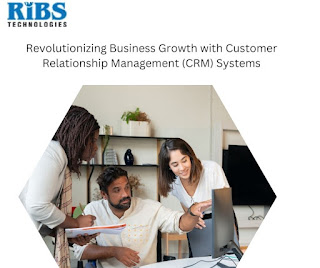Revolutionizing Business Growth with Customer Relationship Management (CRM) Systems
In today’s fast-paced and highly competitive business landscape, companies are constantly seeking innovative ways to stay ahead of the curve and drive sustainable growth. One such groundbreaking solution that has transformed the way businesses interact with customers is Customer Relationship Management (CRM) systems. These software tools have become indispensable for organizations of all sizes, enabling them to streamline processes, enhance customer experiences, and boost overall efficiency.
Customer Relationship Management, often abbreviated as CRM, is a strategic approach that focuses on building and maintaining strong relationships with customers. It encompasses a range of activities, including sales management, marketing automation, customer support, and analytics, all aimed at fostering long-term customer loyalty and maximizing profitability.
CRM software serves as the backbone of a company’s customer-centric initiatives, offering a centralized platform to manage interactions, track sales pipelines, and gain valuable insights into customer behavior. By leveraging CRM technology, businesses can:
Enhance Customer Interactions:
CRM systems provide a 360-degree view of customers, consolidating data from various touchpoints such as emails, phone calls, social media interactions, and website visits. This holistic view enables businesses to personalize communication, anticipate customer needs, and deliver tailored solutions, thereby strengthening relationships and driving customer satisfaction.
Improve Sales Efficiency:
CRM software streamlines sales processes by automating repetitive tasks, managing leads effectively, and prioritizing opportunities based on data-driven insights. Sales teams can access real-time information, track sales activities, and collaborate seamlessly, leading to faster deal closures and increased revenue.
Optimize Marketing Campaigns:
With CRM systems, marketers can create targeted campaigns, segment audiences based on demographics and preferences, and track campaign performance in real time. By analyzing customer engagement metrics and ROI, businesses can refine their marketing strategies, optimize resource allocation, and drive higher conversion rates.
Provide Exceptional Customer Support:
CRM software empowers customer support teams to deliver prompt and personalized assistance, resolve issues efficiently, and maintain a consistent service experience across channels. By capturing customer interactions and feedback, businesses can identify areas for improvement, implement proactive support measures, and build a reputation for excellence in customer service.
Harness Data-driven Insights:
One of the most significant advantages of CRM systems is their ability to generate actionable insights from vast amounts of customer data. By analyzing trends, predicting customer behavior, and identifying opportunities for cross-selling or upselling, businesses can make informed decisions, adapt strategies dynamically, and stay agile in a rapidly changing market.
In conclusion, Customer Relationship Management (CRM) software have emerged as a game-changer for businesses looking to thrive in today’s customer-centric era. By leveraging CRM software, organizations can transform customer interactions into valuable relationships, drive operational efficiency, and unlock new avenues for growth. As technology continues to evolve, embracing CRM solutions will be essential for staying competitive, building brand loyalty, and achieving sustainable business success.
.jpg)
.jpg)

Comments
Post a Comment